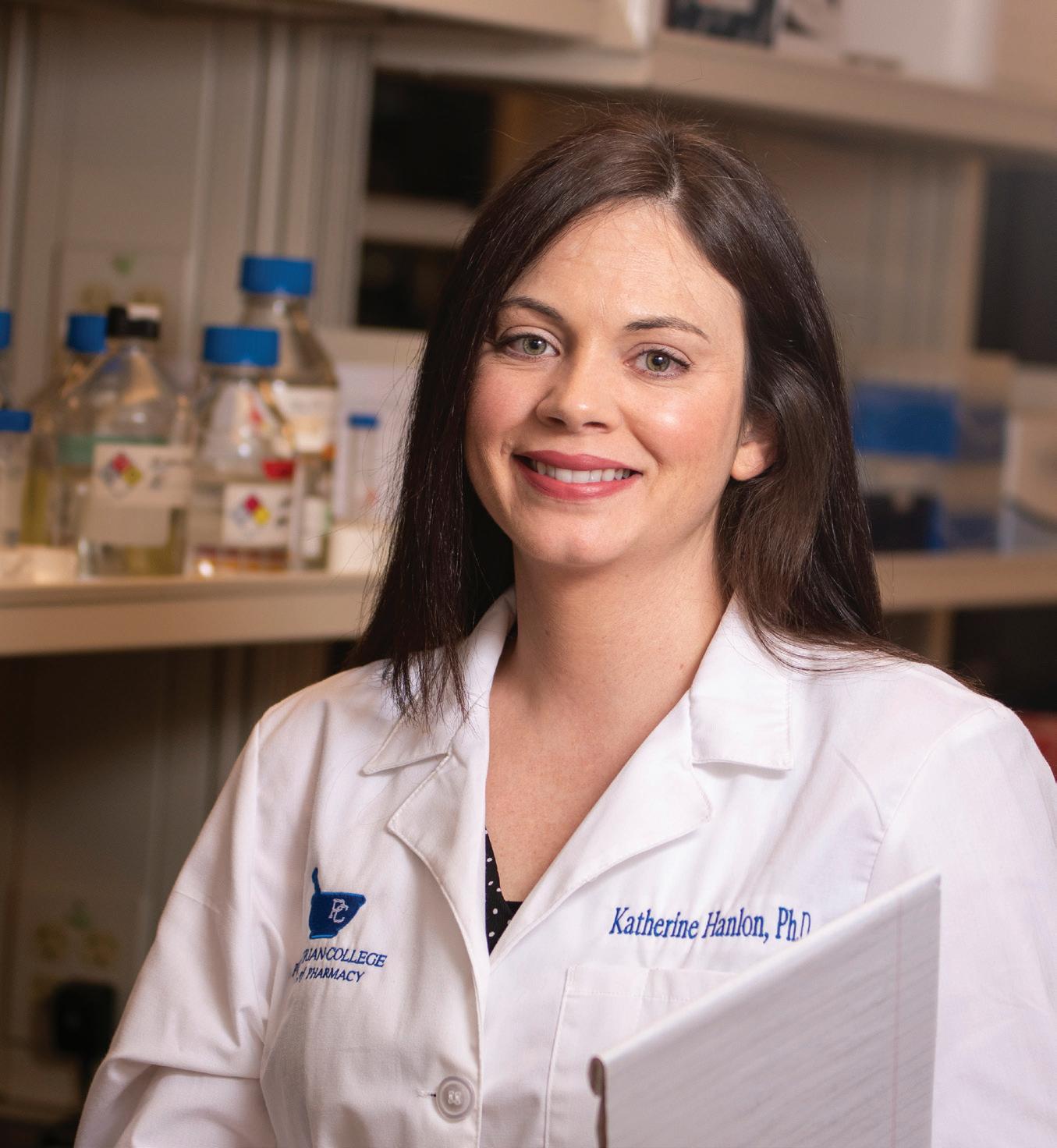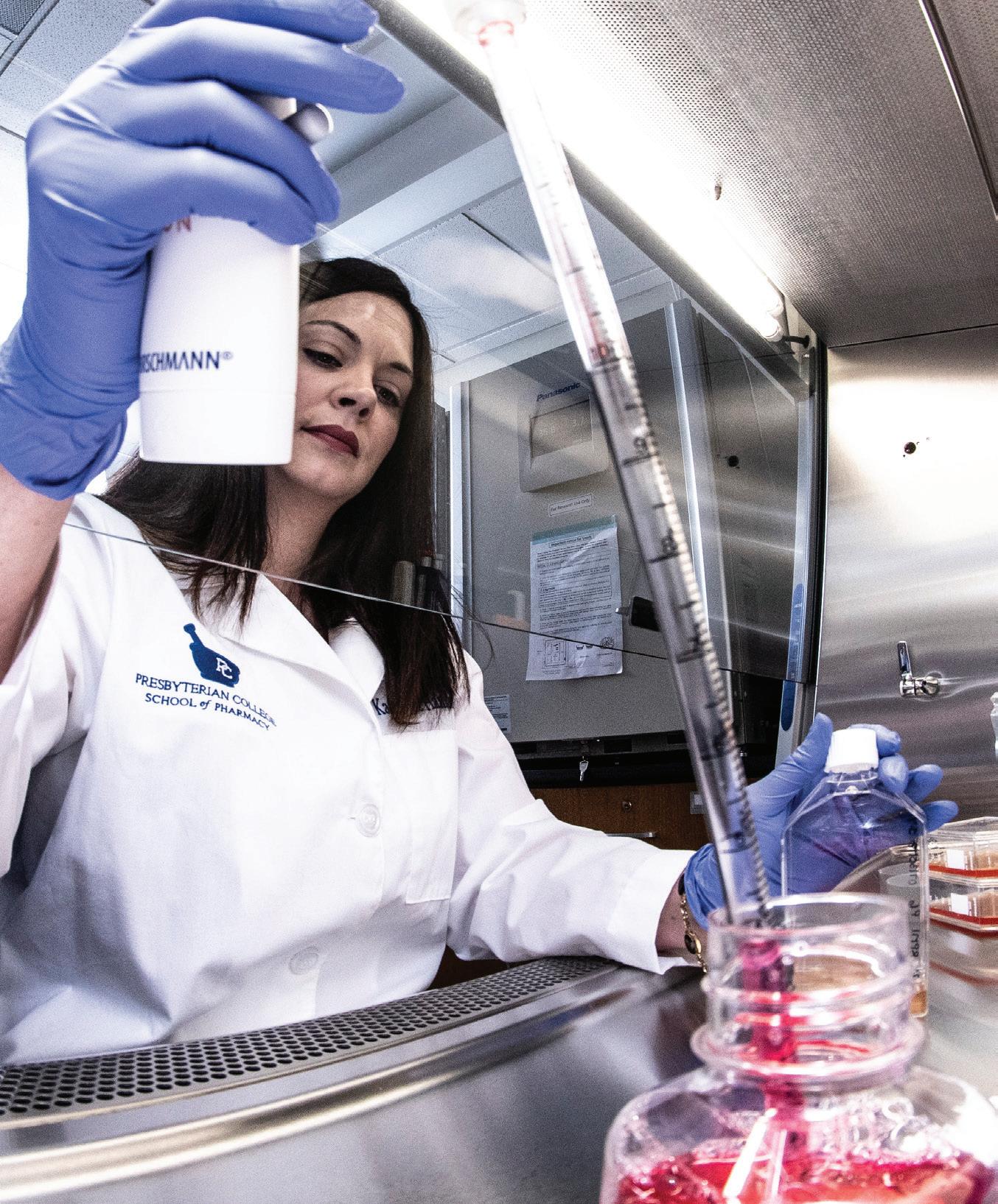
3 minute read
FACULTY HIGHLIGHTS
KATIE ELLIS, PHARMD, BCPPS ASSISTANT PROFESSOR OF PHARMACY PRACTICE
Dr. Katie Ellis was born and raised in Raleigh, N.C., and graduated from South Carolina College of Pharmacy (USC Campus) in 2012. She completed a PGY1 pharmacy practice residency at Carolinas Medical Center in Charlotte, N.C., followed by a PGY2 pediatric pharmacy residency at Texas Tech Health Sciences Center School of Pharmacy in Amarillo, Tex. Following residency, Ellis worked for three years as a clinical specialist in general pediatrics and neonatal/infant intensive care at the Children’s Hospital of Philadelphia. Her current practice site is at Greenville Memorial Children’s Hospital. Ellis’ interests within pediatrics include medication safety, sedation/withdrawal management, and antimicrobial stewardship.
Outside of pharmacy, Ellis enjoys cheering on the Gamecocks, cooking and traveling.
Her passion for academia started as a pharmacy student during a rotation in the neonatal intensive care unit. “My preceptor pushed me outside of my comfort zone and put a great deal of trust in me to take full ownership of patient care. Since then, it has been a goal of mine to be a positive role model for students and really show them how much a pharmacist can contribute to patient outcomes,” she said.
Ellis teaches students how to expand their independent critical thinking skills, become a patient advocate and influence a multidisciplinary team.
“It is very rewarding to observe students master new skills and develop self-confidence,” she said. “I enjoy the challenge of adapting to each student’s unique learning style and learning something new every day in the process!”

KATHERINE HANLON, PhD ASSISTANT PROFESSOR OF PHARMACEUTICAL SCIENCES DIRECTOR OF RESEARCH


Dr. Katherine Hanlon earned a BS in biochemistry and molecular biophysics followed by a PhD in pharmacology at the University of Arizona. Her current research explores macrophage differentiation and function in biological systems with a particular focus on the functional implications of neuro-immune communication between neuronal cell bodies and tissue resident macrophages in the dorsal root ganglia as it pertains to nociception. Hanlon also has a particular interest in modulation of tumor associated macrophage function in breast cancer. Residing in Simpsonville S.C., Hanlon enjoys exploring the waterfalls of upstate South Carolina with her redbone coonhound, Dax.
Hanlon emphasizes the priority of teaching at PCSP as a primary motivator for deciding to teach here. “Teaching was ingrained in me,” she said. As a young child, I routinely sat all three of my brothers down and forced them to let me ‘teach’ them. At a lot of institutions, particularly larger research institutions, teaching isn't valued as highly as it is here at PCSP. My previous job contracts required me to fund my salary through grants or risk-decreased pay or loss of position. This pressure caused me to define my self-worth on monetary factors. Prior to moving to PCSP, I had never been valued for my teaching ability or the other skills that I can provide; it was always about money. Here, I feel recognized for everything that I bring to the table, especially my teaching ability. I feel valued when I suggest ways we can improve things. It's just an entirely different atmosphere and a different perspective on life that came at the right time.”
Teaching human biochemistry in the first semester allows Hanlon to connect and motivate the students during their P1 year. “I work hard to build the student’s self-esteem, especially in that panicked phase that can happen in the first semester of any graduate or professional program,” she said. “The student may question his or her career choice or have feelings of inadequacy. I think the most important reassurance to give is that he or she is not alone. The student’s success is built on how the student chooses to respond to the moment and then setting goals and meeting them. I have parental pride for each student. Even small personal victories I get really excited about, and I love to hear from students as they progress in their careers. I love to hear things like, ‘I remember the day you talked about this and I did this for the first time successfully today!’”






